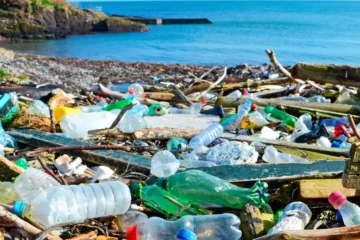Big guns take aim at Web piracy
Internet advocates fight media and drug companies over bills designed to shut down rogue websites. A new compromise plan is a good first step in restoring sanity to the war against international copyright pirates.
Source of this article: The Los Angeles Times, December 11, 2011
By Michael Hiltzik, Times Financial Columnist
Watching mastodons of commerce do battle with each other can be awfully entertaining, as long as one’s vantage point is well out of trampling range. The contest unfolding in Washington between a coalition of entertainment conglomerates and drug companies on the one hand and Google and its fellow Internet giants on the other, however, is of more than academic interest. Too much is at stake.
The fight is over a pair of bills designed, theoretically, to shut down “rogue websites” devoted to pitching pirated or counterfeit movies, music, medicines and other goods at American consumers from overseas. The Senate version is the Preventing Real Online Threats to Economic Creativity and Theft of Intellectual Property Act (“Protect-IP,” get it?). Its House cousin is the known by the less colorful acronym SOPA.
Ginned up chiefly at the behest of Hollywood lobbyists, the measures arrived pre-wrapped in the American flag, concerned as they are with protecting American ingenuity and industry and preserving domestic jobs. Both bills quickly acquired a head of bipartisan steam. Protect-IP has been passed by a Senate committee, and a final markup of SOPA by the House Judiciary Committee is scheduled for this week. Their aims are indeed laudable, and speaking as the holder of copyrights on several books myself, I commend Congress for spending some time thinking about how to fight digital piracy.
Yet as Internet advocates and leading online companies have been pointing out, the measures have fatal shortcomings. They’re so sloppily drafted that they would expose not merely “rogues” but largely innocent websites such as YouTube and Facebook — any site, in fact, that allows users to post content online themselves — to heavy-handed enforcement by government and private entities alike. In fact, they could easily become tools enabling big businesses to stifle creativity and entrepreneurial competition on the Web.
“Fighting rogue websites engaged in large-scale infringement is a pretty easy goal to agree on,” says David Sohn, an intellectual property expert at the Washington-based Center for Democracy & Technology, a critic of the measures. “The question is how Congress can go after that without causing a lot of collateral damage.”
Let’s consider how the measures work by focusing on SOPA, which is the more egregious of the two. SOPA would give any rights owner of supposedly pirated or counterfeited property a powerful weapon against a website the rights holder believes is engaged in infringement.
Once the rights owner issues a notice to payment processors — Visa, MasterCard or PayPal, for example — and to advertising networks placing or carrying ads for the target website, those processors and ad networks have five days to cut the target off.
The action can be staved off if the target issues a counter-notice asserting innocence. But if it doesn’t act within that same five-day window it risks losing its income and ads.
That’s a pretty short time frame, especially if the target website is domiciled abroad. Right there you can see that SOPA would place a nuclear weapon in the hands of copyright holders to use against websites they don’t like.
SOPA gives the Department of Justice even greater power; the agency could issue orders not only against payment and advertising services but Internet service providers, requiring them to block or redirect traffic to websites deemed to be infringers. Type in the Web address for one of those sites, and you might get a message on your computer screen advising you that you’ve been detoured.
The government would need a court order to take that step, but the provision still has Internet architects in a panic, because steering users to a destination other than the one they’ve typed into their browsers is considered a cardinal sin on the Web; it’s the technique employed by scammers trying to con you into giving them your money as well as repressive regimes censoring websites they don’t want their citizens to see. Internet engineers have worked for years to develop protocols to prevent such redirection. At one stroke, SOPA would undo that effort.
SOPA’s biggest drawback may be that it applies too broadly to sites that may be “facilitating” copyright infringement, whatever that means. Advocates of Internet transparency say almost any service allowing users to post content could be swept up in a dragnet cast by an aggressively litigious movie or music company or a zealous federal prosecutor. That could put an end to Internet privacy because Internet providers, search engine firms and social networking sites would be “highly motivated to overcensor” their users to protect themselves, argues Jonathan Zittrain, an expert in Internet regulation at Harvard Law School.
A 1998 federal law exempted such firms from liability as long as they respond promptly to complaints about potentially infringing content by taking it down. But SOPA might supersede those exemptions. We can assume, moreover, that the entertainment conglomerates and manufacturing companies with their brawny shoulders behind SOPA wouldn’t be inclined to use their new powers sparingly, for they certainly haven’t shown much circumspection in the past.
In a study of nearly 1,000 takedown demands filed under the 1998 act from 2002 through mid-2005 (mostly aimed at Google), researchers from USC and UC Berkeley found that nearly a third involved claims of copyright infringement that were legally questionable. More than half of the notices sent to Google were aimed by complainants at their competitors or critics or at hobbyists or academics, which suggests that more was involved than straightforward piracy.
Media companies and their lobbyists are renowned for making exaggerated infringement claims. In one famously absurd example, Universal Music demanded that YouTube take down a California homemaker’s 29-second video of her infant dancing to the tune of Prince’s “Let’s Get Crazy,” which is barely distinguishable on the video’s soundtrack from an aircraft coming in for a landing. YouTube later restored the clip.
As for the pharmaceutical industry, its involvement with SOPA looks suspiciously like another prong in its vigorous — and very well-funded — campaign against the reimportation of cheaper drugs from Canada. The drug companies have taken the argument they made when Congress was contemplating making such transactions legal for U.S. customers — that re-imported drugs would be unsafe — and dressed it up as an online piracy claim: “professional looking websites that promise safe, FDA-approved…medicines from Canada or the U.K.,” a Pfizer executive told the House Judiciary Committee last month, are a “major threat to patients in the U.S.” Big Pharma easily beat back the federal re-importation initiative in 2010, so you shouldn’t bet against its ability to get SOPA enacted.
The Internet industry awakened late to the threat to the Web’s openness and flexibility posed by SOPA and Protect-IP, but lately it’s been fighting back. A compromise proposal floated last week by Sen. Ron Wyden (D-Ore.) and Rep. Darrell Issa (R-Vista) would strip out the more troubling provisions of SOPA, including its monkeying with the Internet’s plumbing and the involvement of prosecutors, and would focus the measure’s gun sights on foreign websites “primarily” and “willfully” engaged in pirating and counterfeiting. But it would place enforcement in the hands of the International Trade Commission, a small, obscure and overburdened federal agency.
Still, the compromise is a good first step in restoring sanity to the fight against international copyright pirates — or at least taking it out of the hands of over-aggressive big companies that always seem to be reaching for more than they can grasp.


